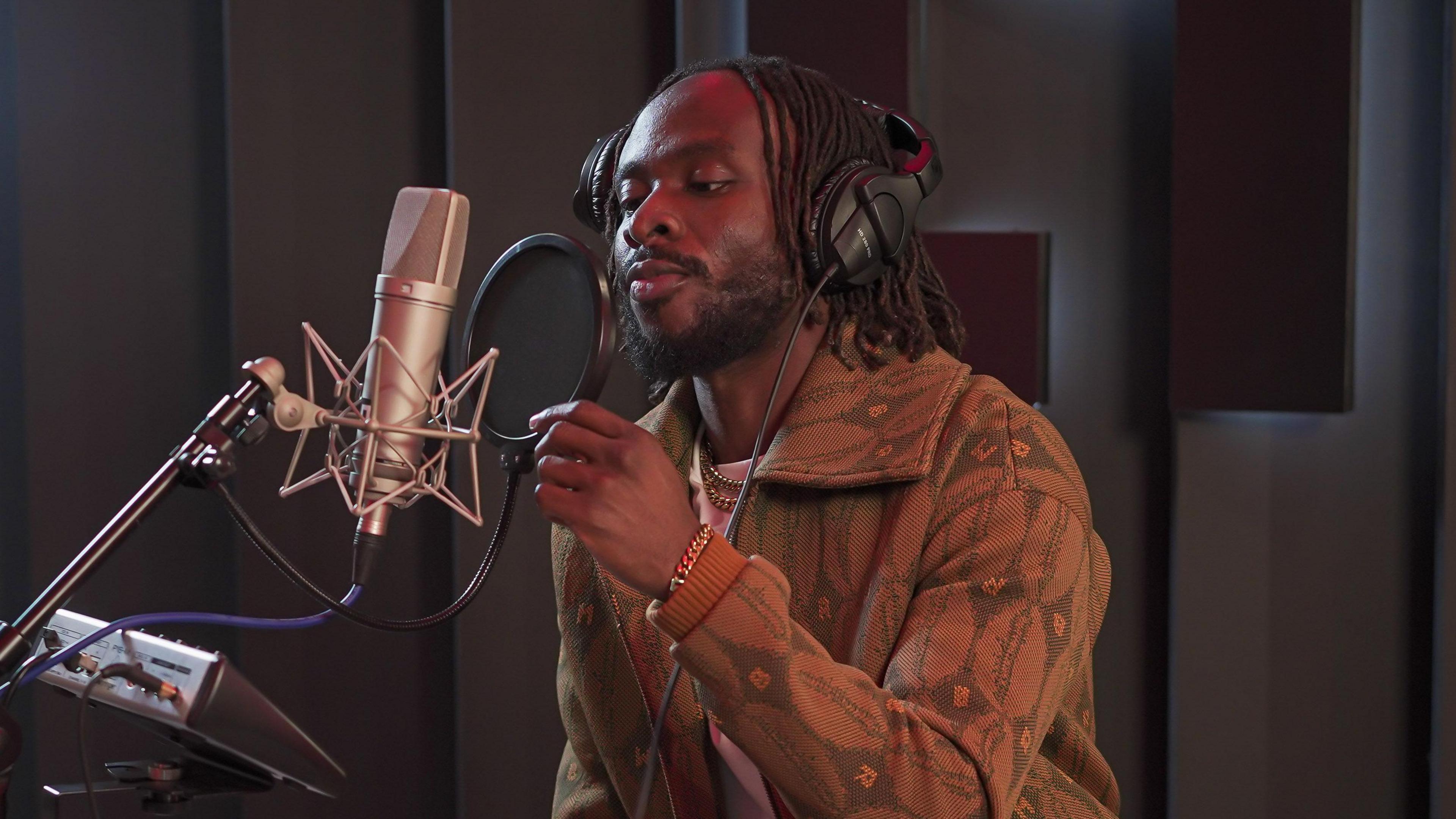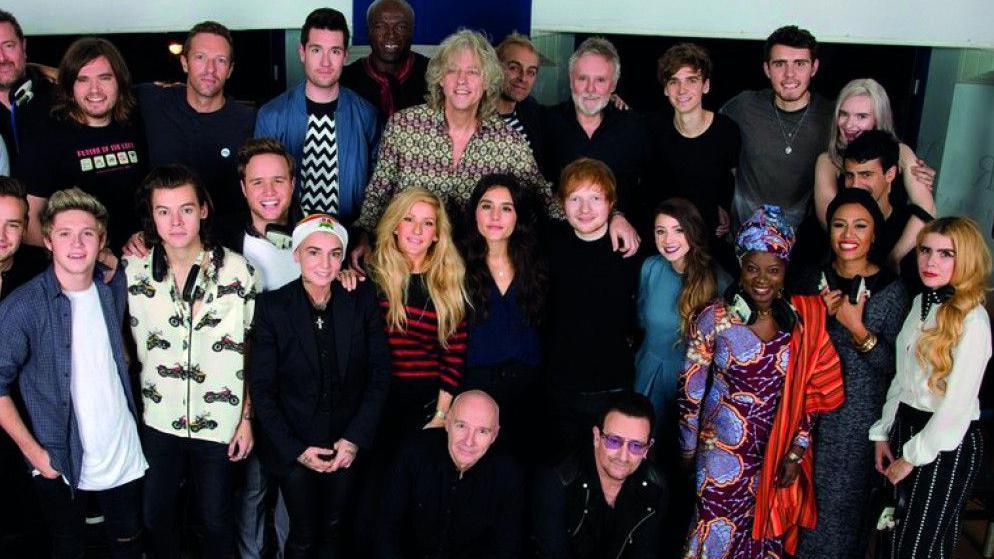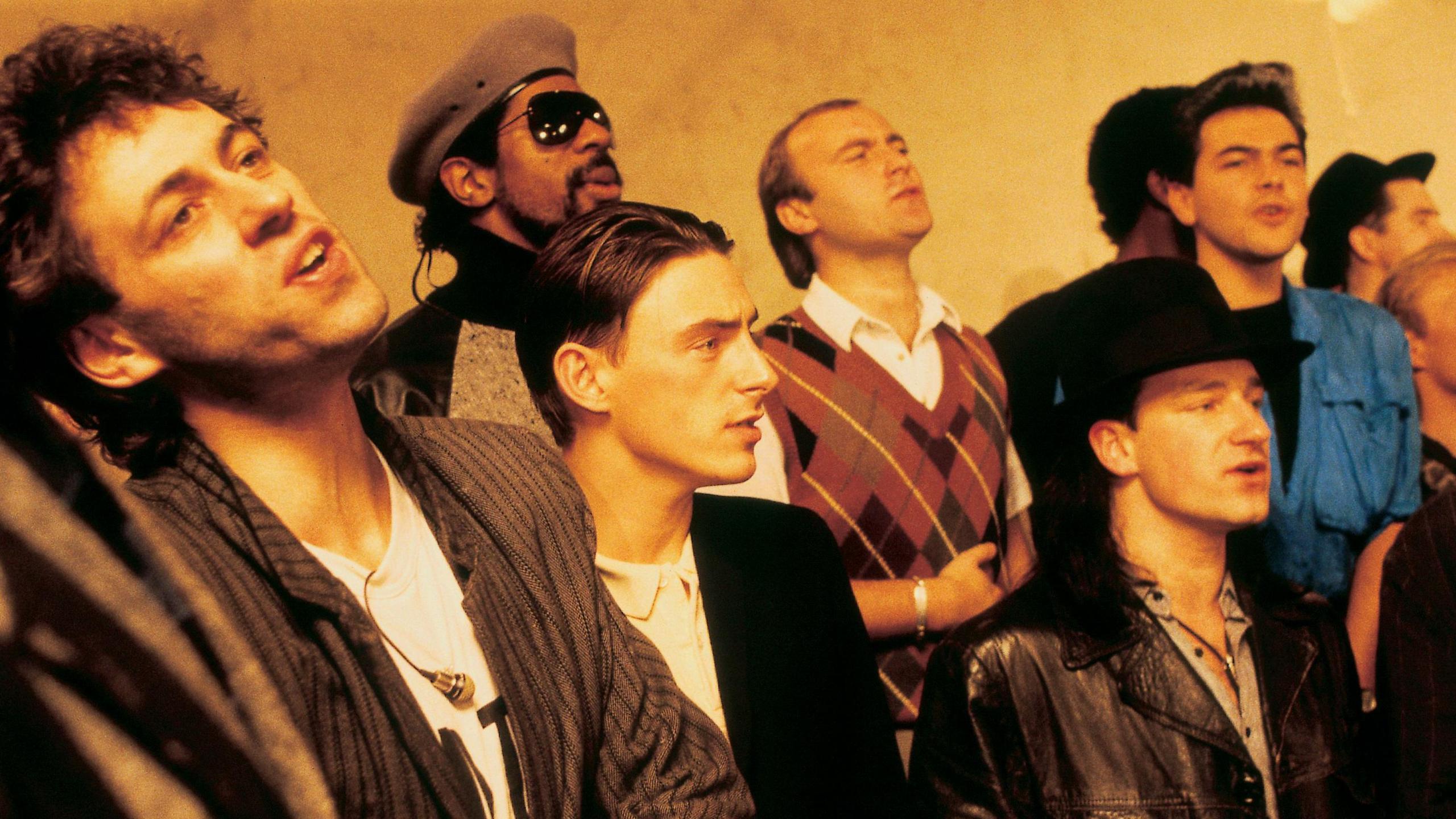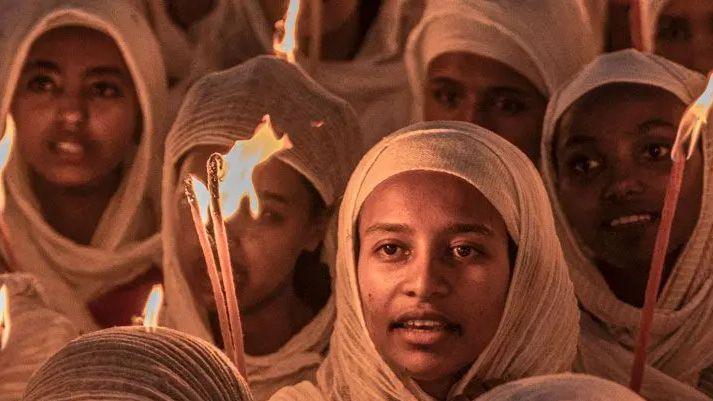Singer Fuse ODG releases Band Aid rebuttal music video

Fuse ODG – aka Nana Abiona – fuses afro-pop with hip-hop and afrobeat R&B
- Published
British-Ghanaian singer Fuse ODG, who recently criticised foreign aid in Africa, has released a music video entitled We Know It’s Christmas, in a rebuttal to the 40th anniversary remake of Band Aid's Do They Know It's Christmas?
The singer/rapper said his latest track is "not just a song" but "a statement".
The video begins with the Grammy-winning star declaring live on ITV's Good Morning Britain programme that "African problems need to be solved by Africans".
It follows Ed Sheeran saying last month that Band Aid had not asked for permission to re-use his vocals from a 30th anniversary version of their track. He then credited Fuse ODG, who had declined the offer to take part in the project, for updating his view of the situation.
Sheeran said: "A decade on and my understanding of the narrative associated with this has changed, eloquently explained by @fuseodg".
Fuse ODG had posted: "I refused to participate in Band Aid because I recognised the harm initiatives like it inflict on Africa.
"While they may generate sympathy and donations, they perpetuate damaging stereotypes that stifle Africa's economic growth, tourism, and investment, ultimately costing the continent trillions and destroying its dignity, pride and identity."
Fuse ODG won a Grammy for his collaborative work on Sheeran's 2017 song Bibia Be Ye Ye. Now his own latest music video features beautiful waterfalls and bustling cities, as well as making nods to famous black leaders including former Ghana president Kwame Nkrumah.
Speaking about We Know It's Christmas (Band Aid Reply), the songwriter said it was intended as "a reflection of where we’ve come from and where we’re going".
"Ten years ago, I made a stand because I believed it was time for Africans to tell their own stories and to redefine the narrative," he said.
"This song is a celebration of that shift. We're no longer waiting for charity; we’re building our own futures," he added.
"This is about empowerment, pride, and showing the world that Africa’s story is far more than poverty and aid."
Allow YouTube content?
This article contains content provided by Google YouTube. We ask for your permission before anything is loaded, as they may be using cookies and other technologies. You may want to read Google’s cookie policy, external and privacy policy, external before accepting. To view this content choose ‘accept and continue’.
The release is an audiovisual response to the latest incarnation of Do They Know It's Christmas? - a charity song first written in 1984 by Bob Geldof and Midge Ure to raise money for the famine in Ethiopia.
The new "ultimate mix" of the Band Aid single blends vocals from several versions of the charity single that have been recorded over the years, so that George Michael duets with Harry Styles, and Chris Martin harmonises with the Sugababes.
Spandau Ballet singer Tony Hadley, who also sang on the original, told BBC Radio 2 that critics like Sheeran "should shut up, to be honest."
"If you take that route, then nobody does anything to help anybody. So it's just nonsense...
"Everybody's doing their bit to try and support various charities and we were doing our bit, innocently, to support what was happening in Ethiopia... So what do we do? Do we sit back and do nothing?"
'Identity crisis'
Speaking to the BBC Breakfast last month, Fuse ODG commented that while the original Band Aid project had been "touching" and well-intentioned, the lyrics and connected images were now having a damaging effect and stopping people from visiting Africa.
"It's been touching seeing the efforts that were put into it initially, the British public and different celebrities coming together to support a good cause, because there was a crisis at the time they needed attending to," he said.
"I have no problem with that, I think that was fantastic, and even just watching it back, I'm even getting emotional."
"But in that act of kindness, in that process of trying to help a crisis, we created another identity crisis," he continued.
"As a child who's now grown up in this era of images like that, Band Aid and initiatives like it have put Africa as a place of famine, a place of poverty, disease-filled.
"It took away our collective sense of pride and identity. So in the middle of trying to solve a temporary crisis, we've caused another dangerous crisis, which is an identity crisis for a whole continent."

Band Aid 30 also saw contributions from Paloma Faith, Clean Bandit, Bastille, Sinead O'Connor, One Direction, Angelique Kidjo, Ellie Goulding, Olly Murs and Jessie Ware.
He went on to tell BBC Africa that despite having been "excited" initially to be invited to take part in the latest rendtion of star-studded charity track, that his over-arching "mission" as an artist was to "realign how the world sees Africa and how Africans feel about themselves".
"It hit me that the images that the Band Aid project portrays just did not align with our mission to portray Africa in a positive light."
Speaking about the debate, Midge Ure recently acknowledged the criticisms of Band Aid's approach in the modern climate, saying it was "unfortunate" that Sheeran had not been contacted about the 2024 mix.
"I understand the whole thing about the 'white saviour complex'," he told Radio 2's Jeremy Vine. "It's not new. We've had this thrown at us for 40 years."
However, he said the song was not about portraying Africa in a negative light, but was trying to show the real-life consequences "of famine, of war, of conflict".
"And the result is children who need food, who need medication, who need education, and that's what we deal with."
Fuse ODG noted: "There's also starving children in the UK.”
Related topics
- Published25 November 2024

- Published24 November 2024
